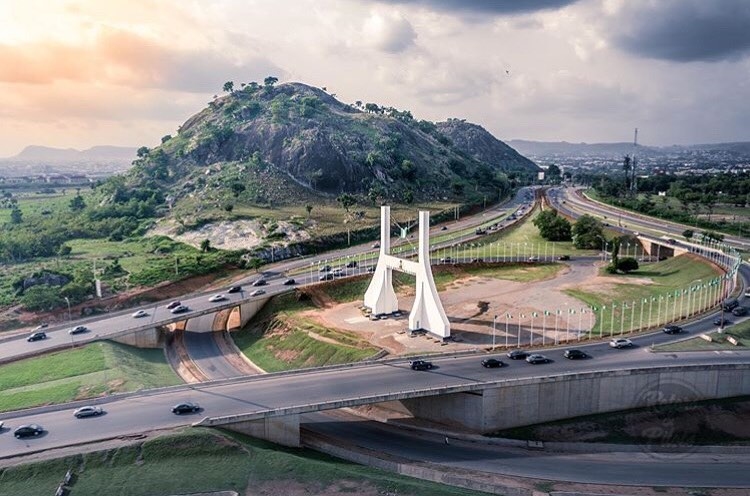Home > Events > Global Dialogue
Global Policy Dialogue on The Africa We Want and the UN We Need: A Regional Dialogue for the Summit of the Future
Co-Sponsors: Savannah Centre for Diplomacy, Democracy & Development, the Stimson Center, One Earth Future Foundation, U.S. Institute of Peace, Humanity United Foundation, the Global Challenges Foundation, Olof Palme International Centre, Foundation for European Progressive Studies, and the Max van der Stoel Foundation, in collaboration with the following partner organizations: Centre…
4 March 2024@
Location
Host/Contributor

Co-Sponsors: Savannah Centre for Diplomacy, Democracy & Development, the Stimson Center, One Earth Future Foundation, U.S. Institute of Peace, Humanity United Foundation, the Global Challenges Foundation, Olof Palme International Centre, Foundation for European Progressive Studies, and the Max van der Stoel Foundation, in collaboration with the following partner organizations: Centre for Democracy and Development West Africa, Global Governance Innovation Network, Kofi Annan Foundation, Dag Hammarskjöld Foundation, Center for Democracy and Development, SDG Kenya Forum, Synergos Institute Nigeria, UN University Centre for Policy Research, European Institute of Peace, Institute for Economics and Peace, and Oxfam International
Background
To prevent recurring global and regional crises in the aftermath of the First and Second World Wars and help to advance human development worldwide, the United Nations was founded in 1945, with only Ethiopia and Liberia qualifying from Africa as original Member States. With political independence, Africa’s UN membership rose over time to fifty-four.
Today, many African countries are struggling to meet their development goals due to the impact of severe and mutually reinforcing socioeconomic, environmental, and political shocks. According to the UN Economic Commission for Africa, economic growth dwindled from 4.6 percent in 2021 to 3.6 percent in 2022, helping to push 18 million more persons into poverty on a continent already dealing with a substantial poverty problem. Compounding this situation, nearly 600 million Africans do not have access to sustainable energy. In addition, across Africa today, many intrastate conflicts are being exploited by international state and non-state actors, fueling human suffering and helping to reverse a long-term, global decline in political violence since the end of the Cold War.
More than ever, and in the run-up to the September 2024 Summit of the Future, African perspectives and innovation priorities need to be heard in policy debates on improving the performance of today’s global institutions (including the UN system) and African regional institutions (including the African Union, ECOWAS, and other sub-regional organizations), so as to better address the critical issues of sustainable development, peace and security, climate governance, democratic and digital participation, and human rights and humanitarian action.
Why now?
Drawing on the Savannah Centre‘s unique convening power across West Africa and the wider African Continent, the SOTF Africa Regional Dialogue will give special attention to the need for enhanced cooperation and coordination between the United Nations and regional/sub-regional organizations (e.g., the African Union and Abuja-based ECOWAS), between countries in the Global South (South-South Cooperation), and between the United Nations and non-state actors from civil society and the private sector (e.g., the Albright-Gambari Commission’s idea of a “UN Global Partnership,” to better harness the ideas, networks, capabilities, and diversity of civil society and private sector actors in the work of the, heretofore, primarily intergovernmental United Nations).
The“theory of change” driving the SOTF Africa Regional Dialogue and earlier regional and global policy dialogues is rooted in the conviction that greater results can be achieved when: (1) individual states and non-state actors recognize that their priority issues or institutional reforms can benefit from a regionally and globally systemic, coalition-supported effort; (2) greater opportunities arise for “deal-making” and linkages between innovative proposals across distinct sectors and institutional settings; and (3) momentum for reform is generated and sustained by early wins on easier issues that lay the groundwork for progress on harder questions.
Objectives
- To convene leading policy researchers, practitioners, and advocates from Africa and around the world to debate and recommend specific regional and global institutional, policy, legal, normative, and operational innovations that could inform the agenda—and help to raise the ambition—of the Summit of the Future, giving special attention to African perspectives and innovation priorities.
- To establish a new platform for African policy researchers and advocates to critically discuss and advance policy research on “What Africa Wants” and the type of relationship the Continent needs to have with the UN, World Bank, IMF, WTO, and regional (including African Union and African Development Bank), and sub-regional institutions (e.g., ECOWAS).
- To strengthen African Union, ECOWAS, and UN collaboration, including through the New Agenda for Peace, Global Digital Compact, and Declaration on Future Generations.
